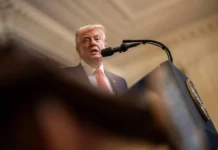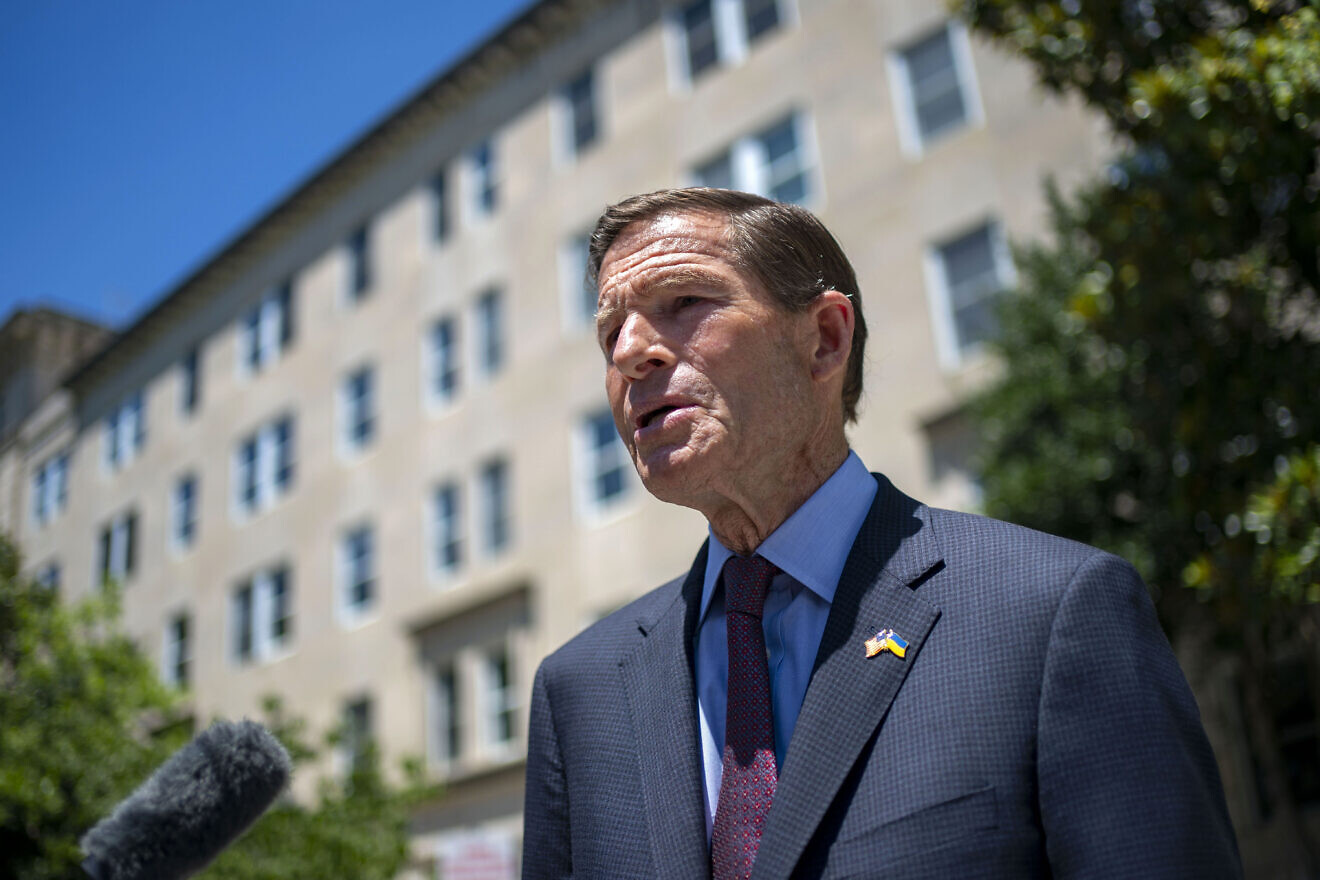Earlier this month, the U.S. State Department announced that it had lifted a ban on selling certain weapons to Saudi Arabia.
The Biden administration “always made clear that the freeze on certain classes of weapons was conditional, and it was based on Saudi Arabia’s policy towards Yemen and efforts to improve civilian harm mitigation measures,” Vedant Patel, principal deputy spokesperson at the State Department, told reporters on Aug. 12.
“The Saudis since that time have met their end of the deal, and we are prepared to meet ours, which means returning these cases—through regular order with appropriate congressional notification and consultation,” Patel said.
Speaking on the sidelines of the Democratic National Convention in Chicago, Sen. Richard Blumenthal (D-Conn.), a harsh critic of the Saudis, told JNS that thawing relations between the kingdom and the United States may indicate there is hope for Saudi-Israeli normalization.
“The Biden administration really, really wants relations to be normalized between Saudi Arabia and Israel,” said the member of the Senate Armed Services Committee.
“One of the points of leverage that we have is the arms deals, as well as a potential security agreement—maybe not a treaty, but some kind of understanding—and other benefits that would flow to Saudi Arabia in the event of normalized relations,” the senator added.
Blumenthal insisted part of normalization “has to be that Saudi Arabia recognizes Israel and engages in a process that links Israel to the rest of the region in normalization of those relationships as well.”
JNS asked the senator if he thinks there is a direct correlation between Washington lifting the arms ban on the kingdom and a push for the latter’s normalization with the Jewish state in the waning weeks of the Biden administration’s term, Blumenthal declined to speak for the White House.
“I think some kind of security agreement has always been part of the mix of potential benefits to Saudi Arabia in normalizing relations with Israel,” he said.
Israeli media has reported for weeks, citing anonymous U.S. and Israeli sources, that Israeli-Saudi normalization would have been near impossible before the U.S. presidential elections in November. It could take place, however, during the lame duck period between November and January, according to U.S. and Israeli officials.
Rep. Brad Schneider (D-Ill.), a member of the congressional Abraham Accords caucus, told JNS on the DNC sidelines that he saw the Saudi desire to “build a future that’s part of the broader world” during a short visit to the kingdom earlier this year.
“I think that there is an opportunity building on the Abraham Accords, bringing in Saudi Arabia, bringing in other countries, to create a different future for the region,” he told JNS. “It’s what I call ‘breaking away from the gravity of the history of the region, the history of the Palestinians, the history of the conflict.’”
“You extend that outward,” he added, “and if we can find a path to build a new future—a future of peace and security—that’s something we should all be working for.”

























